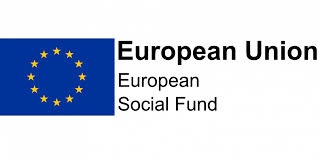Sustainability and Inclusive Leadership: Honest Communications
Since September 2020, NTU have delivered the Sustainability and Inclusive Leadership (SAIL) course for SMEs. Here's what Rosie from Honest Communications made of it.
By Joe Boultby-Ward | Published on 3 March 2021
Categories: Business;


Through the Priority Skills for D2N2 SMEs project*, Nottingham Trent University (NTU) is supporting small and medium-sized enterprises (SMEs) to access free bespoke, employer-led training, career coaching and advice to up-skill their employees in vocational and high-level technical skills.
Since September 2020, NTU have delivered the Sustainability and Inclusive Leadership (SAIL) course which explores the global climate crisis, the very real impact this has on the economic landscape, and how important it is for businesses to be more sustainable as they work towards COVID-19 recovery.
Rosie Ferrer, Account Manager at Honest Communications

Rosie Ferrer
Rosie Ferrer is an account manager at Honest Communications, a Derby-based PR and content agency.
Driven by a personal desire to become more literate about climate change and channel her own concerns into positive action, she enrolled on NTU’s SAIL course in early 2021.
Reflecting on the impact of the course, Rosie says:
“I feel as though I took away a lot in terms of learnings and achievable actions.
“I was surprised by the different levels of impact that carbon reduction actions have, and many things that I thought would have a high impact actually didn’t, and vice-versa.
“It’s really made me think about ‘greenwashing’ in PR [a practice of giving the impression that products, services, aims and policies are more environmentally-friendly than they really are], and I now feel more confident in addressing this myself.
The best part about the course for Rosie was meeting learners on the course, commenting: “It was great to meet with others who share the same climate concerns and have a conversation about possible solutions, but lots of different perspectives.”
Thinking about the longer-term changes that she will make in her personal and professional life, Rosie says:
“Now I have a better understanding of changes with the biggest impact, I’m going to eat more locally grown plant-based food and fly much less. When I need to replace my car, I’m definitely choosing electric.
“At work, although it originally came about as a result of COVID-19, we’ll certainly be using remote meetings more.”
Find out more about the project
The Priority Skills for D2N2 SMEs project still has a number of courses available to employees of SMEs in the D2N2 area.
Find out more about the courses available and how to enrol on the NTU website.
You can contact us via any of the below channels:
- Email: SAIL@ntu.ac.uk
- Twitter: @NTU_SME
- LinkedIn: SME Support at NTU
You may also wish to sign up to our monthly commercial newsletter.
Supporting sustainability at NTU
NTU is one the most sustainable universities in the world.
Through sustainability research, working towards the UN Sustainable Development Goals, and working as a sector leader in Education for Sustainable Development (ESD), we are enabling a culture of sustainable development.
Find out more about NTU’s sustainability work on our website.
* The Priority Skills for D2N2 SMEs project is part-funded by the European Social Fund (ESF) and is part of the High Level Skills programme.
Notes for Editors
For media enquiries, please contact Joe Boultby-Ward, ESF Marketing Manager by email or on +44 (0)115 878 8899.
- The High Level Skills programme is part-funded by the European Social Fund (ESF) and is made up of two complementary projects – Priority Skills for D2N2 SMEs, and GRADS for D2N2.
- The projects have received £2,201,163 (Priority Skills for D2N2 SMEs) and £7,360,994 (GRADS for D2N2) of funding from the European Social Fund as part of the 2014-2020 European Structural and Investment Funds Growth Programme in England.
- The Department for Work and Pensions (and in London the intermediate body Greater London Authority) is the Managing Authority for the English European Social Fund programme.
- Established by the European Union, the European Social Fund helps local areas stimulate their economic development by investing in projects which will support skills development, employment and job creation, social inclusion and local community regenerations.
- For more information, visit https://www.gov.uk/european-growth-funding.